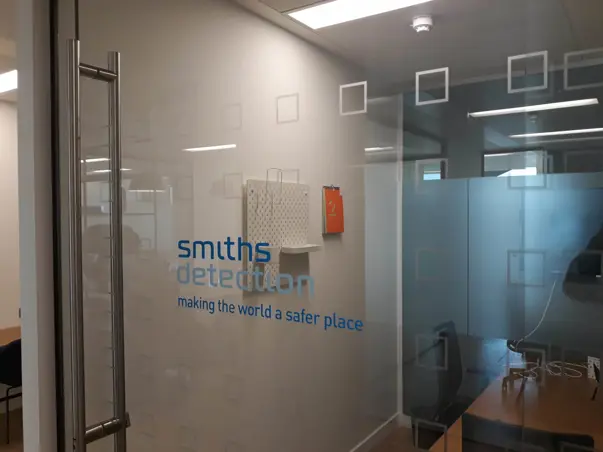Global threat detection and security technologies company, Smiths Detection today announces the opening of an office at Imperial College London’s White City Campus within the I-Hub, with the intention of establishing a research and development (R&D) partnership between the two organizations.
Imperial’s co-working facility in the I-Hub provides a space for Smiths Detection’s scientists and engineers to work more closely with the Colleges network of academics and researchers on cutting edge technologies for the defence and security markets.
Smiths Detection’s new office adds to Imperial’s larger initiative to create a hub that focuses on security research, innovation and engagement led by the Institute of Security Science and Technology (ISST). Smiths Detection will be sitting amongst other innovators in the field who have already established offices at White City, including Airbus, Saab and DASA.
“Imperial are looking to bring together some of the top innovators in the field to help address pressing security challenges facing society,” said ISST Deputy Director, Deeph Chana. “Smiths Detection brings a strong homeland security presence to the I-Hub.”
Smiths Detection reinvests around 6 percent of revenue per year into R&D, and regularly partners with leading universities from around the world to help solve problems and collaborate on the development of technologies. However, establishing an office in such a space is a first for the company.
“At Smiths Detection, we’re dedicated to developing innovative products and technologies that address our customer’s needs,” said Smiths Detection Vice President for Technology, Matt Clark. “Working in this space with Imperial provides us with the opportunity to accelerate technology development through fresh thinking and diverse ideas.”
###
About Smiths Detection
Smiths Detection is a global leader in threat detection and screening technologies for aviation, ports and borders, urban security and defence. With more than 40 years of field-tested experience, we deliver the solutions needed to protect society from the threat and illegal passage of explosives, prohibited weapons, contraband, toxic chemicals and narcotics.
Our mission is to help make the world a safer place – and do this by using technology to develop innovative solutions and services which protect life, safeguard society and uphold the free flow of trade.
For more information visit https://www.smithsdetection.com.
About Imperial College London
Imperial College London is one of the world’s leading universities. The College’s 16,000 students and 8,000 staff are expanding the frontiers of knowledge in science, medicine, engineering and business, and translating their discoveries into benefits for society.
Founded in 1907, Imperial builds on a distinguished past – having pioneered penicillin, holography and fibre optics – to shape the future. Imperial researchers work across disciplines to improve health and wellbeing, understand the natural world, engineer novel solutions and lead the data revolution. This blend of academic excellence and its real-world application feeds into Imperial’s exceptional learning environment, where students participate in research to push the limits of their degrees.
Imperial collaborates widely to achieve greater impact. It works with the NHS to improve healthcare in west London, is a leading partner in research and education within the European Union, and is the UK’s number one research collaborator with China.
Imperial has nine London campuses, including its White City Campus: a research and innovation centre that is in its initial stages of development in west London. At White City, researchers, businesses and higher education partners will co-locate to create value from ideas on a global scale.
About the Institute of Security Science and Technology
The Institute for Security Science and Technology (ISST) is Imperial College London’s hub for security research and engagement.
The Institute was founded in 2008 as one of Imperial College’s Global Challenge Institutes, to help meet the greatest security challenges faced by society. We promote interdisciplinary working, serve as a focal point for multidisciplinary activities and an interface to stakeholders, formulate and apply new areas of knowledge and technology, and provide independent scientific advice.
Our activity areas represent the diverse and changing security landscape, and include critical infrastructure, healthcare & medical devices, financial systems, biosecurity, nuclear, transport, and climate & environmental security.
https://www.imperial.ac.uk/security-institute/
Sophie Mills
Global Communications Manager
+ 44 (0)7384236474
sophie.mills [@] smithsdetection.com

